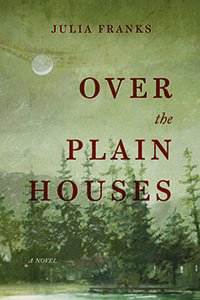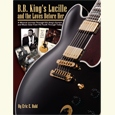A Demon-Haunted Land
In Julia Franks’s debut novel Over the Plain Houses, a Depression-era farm wife seeks solace in the wilderness
Julia Franks begins Over the Plain Houses with an epigraph from Anne Sexton’s “Her Kind,” a poem about a woman ostracized from civilized society. Sexton’s speaker imagines herself “a possessed witch” who brooms “over the plain houses” at night, “dreaming evil.” What makes this debut novel remarkable are the ways in which Sexton’s diabolical metaphors become literal: Franks’s heroine, Irenie Lambey, actually does sneak into “caves in woods” and fill them with “closets, silks, innumerable goods”; she feels “flames bite my thigh” and suffers injuries comparable to having “my ribs crack.” But Irenie doesn’t visit the mountain shadows to consort with demons. She’s escaping a soured marriage during a time when women struggled to find shelter from violence in their own homes.
 The setting is western North Carolina farm country in 1939, when the U.S. Department of Agriculture sent agents into rural communities to provide training and guidance for surviving the Depression. Irenie is married to Brodis, a handsome logger turned preacher, who discovers by chance that his wife fills the witching hours of night by roaming the hills near their home. If Brodis were to question Irenie directly, he would learn that she is still traumatized by the miscarriage of their daughter fourteen years earlier. Instead, he speculates that her head has been turned by Virginia Furman, a U.S.D.A. representative who has already meddled in their lives, convincing Irenie that they should send their son Matthew to a boarding school for gifted students in Asheville. Soon Brodis becomes convinced that his once-pious wife has not only rebelled against him but has repudiated God himself.
The setting is western North Carolina farm country in 1939, when the U.S. Department of Agriculture sent agents into rural communities to provide training and guidance for surviving the Depression. Irenie is married to Brodis, a handsome logger turned preacher, who discovers by chance that his wife fills the witching hours of night by roaming the hills near their home. If Brodis were to question Irenie directly, he would learn that she is still traumatized by the miscarriage of their daughter fourteen years earlier. Instead, he speculates that her head has been turned by Virginia Furman, a U.S.D.A. representative who has already meddled in their lives, convincing Irenie that they should send their son Matthew to a boarding school for gifted students in Asheville. Soon Brodis becomes convinced that his once-pious wife has not only rebelled against him but has repudiated God himself.
The novel toggles between the perspectives of Irenie and Brodis, sometimes switching within a scene to show differences in what they see and how they respond to it. The narration dips into their minds, as well, and reveals for example how Brodis’s opinions about gender roles are inflected with Biblical language. “A man hadn’t ought to suffer a woman to teach, nor to take authority over him,” Brodis thinks, “but to be in silence.” On the next page, Irenie’s silent rebuttal sounds more like homespun wisdom: “She hadn’t figured herself for the kind of person who knew a thing to be wrong and sat by and watched it anyway.”
Franks maintains narrative tension by building her characters’ internal lives rather than relying on continual incident. Irenie works in the kitchen and ponders her choices. Brodis plows the fields, disturbed by his family’s dissolution and increasingly desperate to redress its errancies. These scenes accumulate with mounting emotional significance. In lesser authorial hands, the plot could have devolved into melodrama, but Franks creates these damaged characters with subtlety and complexity.
Brodis is an especially notable creation. Though Irenie’s fate remains the center of attention, Brodis occupies equivalent pages, including long sequences on his trying adolescence, life-and-death experiences in the logging industry, and religious conversion. He does not come across as a conventional, Bible-thumping hypocrite but as a genuine man of God who endeavors to exercise compassion and follow the path of peace. Franks tests our sympathy for him when he commits an egregious act of violence, but Brodis never appears less than human. His vicious outbursts emerge as products of his environment and his misguided faith.
 By delving into her characters’ inner experiences, Franks transcends generic pigeon-holing. This novel cannot be reduced to its treatment of the Depression, or of women’s issues, any more than Charles Frazier’s Cold Mountain could be called simply a Civil War novel. Over the Plain Houses captures elemental emotions and depicts deep ambivalences about intimate relationships. Irenie hoped that marrying Brodis would open up her world, “But somehow the opposite had happened.” Their land, a parcel from her parents’ farm, “had shrunk so tight that she found herself lonely in it. She’d come to hate the root cellar. All winter she inventoried there, sitting in the dank with the fust and the mold nudging at the door.”
By delving into her characters’ inner experiences, Franks transcends generic pigeon-holing. This novel cannot be reduced to its treatment of the Depression, or of women’s issues, any more than Charles Frazier’s Cold Mountain could be called simply a Civil War novel. Over the Plain Houses captures elemental emotions and depicts deep ambivalences about intimate relationships. Irenie hoped that marrying Brodis would open up her world, “But somehow the opposite had happened.” Their land, a parcel from her parents’ farm, “had shrunk so tight that she found herself lonely in it. She’d come to hate the root cellar. All winter she inventoried there, sitting in the dank with the fust and the mold nudging at the door.”
This world is recognizably the twentieth century, with technology advancing and global war on the horizon, but the language Franks employs partakes of the archaic. “A piece of land could never do anything but wait dumb and fallow for the imprint of a man,” Brodis thinks. “But his wife moved along it like she’d been born for it, like she had a direction, away and away, and a fellow had to be nimble to stay with the flow of her.” He remembers a time when loggers ended their drives in “music and cards and drinking and sworping,” and Irenie observes how “the branches of the redbud curved and wingled against the naked forest.”
The feminist theme announced in the Sexton-inspired title echoes throughout Over the Plain Houses. In order to carve out nooks of agency for themselves, women in this community resort to misdirection and obfuscation. They speak in codes and transmit wisdom through generations via secret recipes. Against this paternalistic, misogynistic backdrop, a few enlightened male voices telescope to a more humane future. Troubled by Brodis’s insistence on a literal interpretation of the Bible’s injunction that a wife should submit to her husband, Irenie asks her father, “Does Mama belong to you?” Her father (who jokes about being henpecked) assures her that “every creature belongs to its own self.” Brodis himself has to remind a fellow preacher, who has a disturbing taste for vigilante witch-hunting, that “this is the twentieth century, not the Middle Ages.” In Julia Franks’s novel, modernity has yet to break away from superstition and bigotry, but the most frightening demons, then and now, are the hobgoblins that possess our minds.

Sean Kinch grew up in Austin and attended Stanford University. He earned a Ph.D. in modern fiction from the University of Texas. He now teaches English at Montgomery Bell Academy in Nashville.


